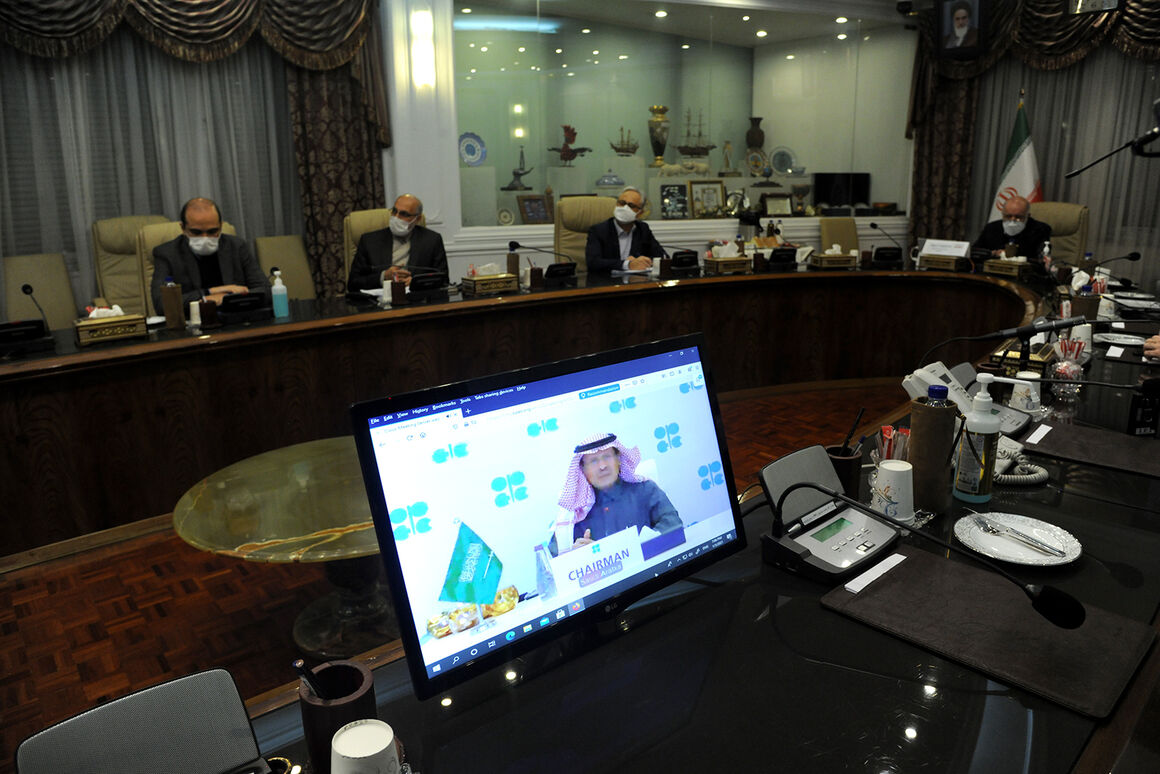The Meeting, which reconvened following an initial round of discussions on 4 January, reaffirmed the continued commitment of the participating countries in the Declaration of Cooperation (DoC) to a stable market in the mutual interest of producing nations; the efficient, economic and secure supply to consumers; and a fair return on invested capital.
In addition, the Meeting recalled the decision taken by all DoC participating countries at the 10th (Extraordinary) ONOMM on 12 April 2020 to adjust downwards overall crude oil production, the unanimous decisions taken at the 11th ONOMM on 6 June 2020, and the outcomes of the 12th ONOMM on 3 December 2020.
The Meeting highlighted the unprecedented events of 2020 and shocking impact of the COVID-19 pandemic on the world economy and markets, and commended the DoC participating countries for undertaking the largest and longest crude oil production adjustments in history in response to the exceptional challenges and market conditions caused by the pandemic.
It pointed out that rising infections, the return of stricter lockdown measures and growing uncertainties have resulted in a more fragile economic recovery that is expected to carry over into 2021. The Meeting recognized that market sentiment has been buoyed recently by vaccine programmes and improved asset markets, but underscored the need for caution due to prevailing weak demand and poor refining margins, the high stock overhang and other underlying uncertainties.
The Meeting acknowledged the need to gradually return 2 mb/d to the market, with the pace being determined according to market conditions. It reconfirmed the decision made at the 12th ONOMM to increase production by 0.5 mb/d starting in January 2021, and adjusting production reduction from 7.7 mb/d to 7.2 mb/d.
The adjustments to the production level for February and March 2021 will be implemented as per the distribution detailed in the attached table. Production adjustments for April and subsequent months will be decided during the monthly ONOMM following the criteria agreed upon in the 12th ONOMM.
The Meeting reiterated the need to continue closely monitoring market fundamentals, including non-DoC supply and its impact on the global oil balance and overall market stability.
The Meeting noted that high conformity levels have contributed significantly to market rebalancing and stability. Between May and November, participating OPEC and non-OPEC countries contributed to reducing the global supply by approximately 1.9 billion barrels, including voluntary adjustments, and this has been key to the rebalancing of the market.
The Meeting drew attention to the exceptional year of 2020 as an outlier that distorts the latest five-year average of OECD commercial oil stock levels. It recommended retaining the 2015-2019 average as a more representative metric, while keeping the latest five-year average for the time being.
Furthermore, the Meeting expressed appreciation to participating countries, particularly the United Arab Emirates (UAE) and Angola, which have performed beyond expectation. At the same time, it reiterated the critical importance of adhering to full conformity, and compensating the overproduced volumes in accordance with the statements of the 11th and 12th ONOMM, in order to achieve the objective of market rebalancing and avoid undue delay in the process.
It requested all underperforming participating countries to submit their plans for implementation of the required compensation for the overproduced volumes to the OPEC Secretariat by 15 January 2021.
The Meeting welcomed HE Dr Mohammad Alfares, Kuwait’s new Minister of Oil and Minister of Electricity and Water, and expressed its appreciation to his predecessor, Dr Khaled A. Al-Fadhel, for his dedication to the DoC process.
The Meeting decided to hold the next Joint Ministerial Monitoring Committee (JMMC) Meeting on 3 February 2021, followed by a JMMC Meeting on 3 March 2021 and ONOMM on 4 March 2021.


Your Comment